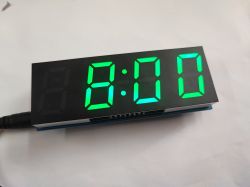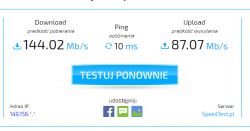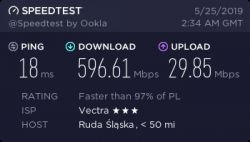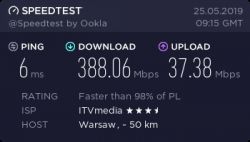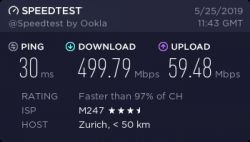I remember the times when the bandwidth from the Internet provider was a key issue when choosing an offer. Initially hundreds of Kb / s, then single Mb / s, up to a quick jump to tens of Mb / s, then hundreds of Mb / s to 1 Gb / s. In the 30-100Mb / s throughput period, the client's choice of the offer was also determined by the internet data sending capacity, which oscillated between 2-20Mb / s. In business, more expensive links tempted with symmetrical upload / download parameters, as well as the declared reliability and response time.
In times where you can easily have a 50Mb / s connection, what real bandwidth do you need for everyday use of internet resources at home?
Do the lines proposed by suppliers, e.g. 300Mb / s, 600Mb / s, and even 1Gb / s, make sense?
Of course, the higher the bandwidth, the faster you will download or send something, but are such amounts of data transferred at home?
Movies, VOD, FHD and 4K cope with low-end connections.
Maybe sharing a link between many people at home requires a lot of bandwidth, but are they all active at the same time?
What bandwidth do you expect on a home fixed line connection, and what bandwidth for mobile access?
In times where you can easily have a 50Mb / s connection, what real bandwidth do you need for everyday use of internet resources at home?
Do the lines proposed by suppliers, e.g. 300Mb / s, 600Mb / s, and even 1Gb / s, make sense?
Of course, the higher the bandwidth, the faster you will download or send something, but are such amounts of data transferred at home?
Movies, VOD, FHD and 4K cope with low-end connections.
Maybe sharing a link between many people at home requires a lot of bandwidth, but are they all active at the same time?
What bandwidth do you expect on a home fixed line connection, and what bandwidth for mobile access?
Cool? Ranking DIY



